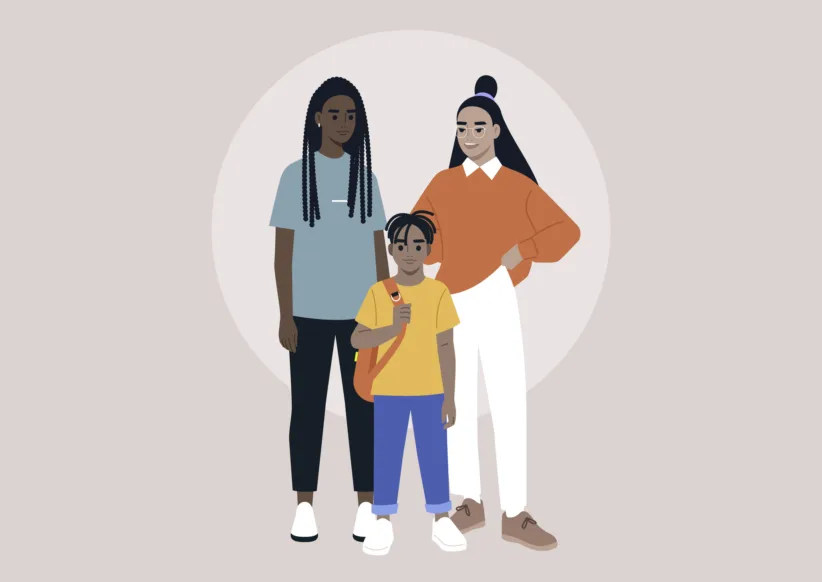Once Dr. Richard Weissbourd, a Harvard psychologist, became a father, he was surprised by the parenting culture he encountered—a culture that seemed to prioritize children’s happiness and achievements over simply being a good person. In “The Parents We Mean to Be: How Well-Intentioned Adults Undermine Children’s Moral and Emotional Development,” Dr. Weissbourd suggests that parents evaluate and perhaps rethink the values they are (perhaps inadvertently) instilling in their kids.
Why did you decide to write “The Parents We Mean To Be”?
In our interviews and surveys, we came across lots of wonderful parents and lots of wonderful kids, but I am troubled by the degree to which, as parents, we are focused on achievement and happiness as opposed to our kids being good and caring people. In the early parts of collecting data, we asked kids to rank what’s most important to their parents: being a good person, being a happy person, or achieving at high level. The large majority of kids think that their happiness is more important to their parents than their goodness is. About 40 percent of kids in our affluent community thought their achievements were more important to their parents than their goodness was. So I got pretty stirred up by that and I felt like it was important information to get out into the world.
At what age should parents start to focus on teaching their children morality?
From birth. There are things that parents can do to build empathy in infants. The extent to which you’re really forming a good attachment with your kids, the extent to which you’re responsive to your kids, and mirroring your kids feelings—all of those things help to build empathy in infants. As kids get older, it is very important to let them know about standards of right and wrong, but most kids learn those standards fairly quickly. The bigger challenge is to get kids to internalize those standards and have these values be part of who they are. The big challenge of parenting is all the things you can do day-to-day to help your kids understand other people and care about people. Don’t let your kid treat a waitress or store clerk as invisible, and don’t let your kids disrespect you. Point out for kids the kindness and unkindness in the world around them. All of those kinds of things, from an early age, help to build character.
In the book, you say that schools and teachers also play a part in shaping a child’s morality. What should parents look for in a school to ensure that it promotes good values?
There are a few different things that are important for parents to look for. One is that schools are interested in engaging them as parents. They are the primary shapers of their kid’s moral lives, and I think schools are most effective in promoting moral development if they’re working in close concert with parents. There’s certainly curriculum that is rich in ethical content, in moral content, and that’s something you can ask a teacher or school about—whether there are opportunities for kids to think about moral questions and to learn about moral problems in the world. You can really look at the kinds of relationships that people seem to have in a school: Do teachers seem to respect each other? Do teachers seem to respect kids? Do kids seem to respect teachers? Are there frequent acts of disrespect and disorganization that suggest that it is not a caring community? I think the best schools also have statements of their values. They’re not just statements that are plastered on the walls. They’re statements that really live and breathe in the school. There are conversations among the faculty and among teachers about whether those values are really being realized.
You’ve said in the past that you agree with author and psychologist Wendy Mogel, who said that a good rule is not to spend more than 20 minutes a day thinking about your child’s education or worrying about your child. Why is that?
If a child has a serious academic or emotional problem, you absolutely need to be thinking about it, but other than that, I think it is a good rule. Parents are just fussing about their kid’s academic achievement too much and trying to micromanage it too much in ways that don’t make kids achieve more. There is research that says that kids who experience too much achievement pressure don’t achieve more, and it can make them really anxious and can make the whole experience of school an uneasy, anxiety-ridden one. Parents clearly need to be involved in their kid’s school, but too much hovering and micromanaging, I think, does make kids really anxious and stressed.
What has the response been to your book so far?
I’ve gotten lots of emails from parents who have said that they’re concerned about some of the same things. They’re concerned that we’re praising kids too much and we’re not focusing on our kids’ obligations to others. I was expecting more resistance to this message and I have not really gotten it. I’ve gotten much more positive feedback in that sense. The book connects to something people are seeing out there.
What advice would you give to a parent who is overwhelmed by parenting guides that focus on their child’s happiness, getting their child into school, and guides that may push them to embrace the idea that their child needs to achieve the best?
I just think that there always needs to be a value that’s higher than achievement. If kids are just achieving for achievement’s sake, it’s really a recipe for an empty life, and they’re going to be vulnerable to lots of problems. Charles Ducey, who is the head of Harvard’s counseling services, has said to me that when Harvard students find out what’s meaningful to them, a lot of anxiety and depression disappears. You’ve got to help kids find what’s meaningful to them and what they feel passionate about. If you’re achieving in the service of something, you’re much more likely to have a meaningful and gratifying life where you’re less vulnerable to trouble.
What message do you want parents to take from this book?
There are two messages that I think are really important. Rather than telling your kids, “All I want is for you to be happy,” I would love it if parents would say, “All I want is for you to be kind and happy.” And rather than focusing on happiness so much, I think it’d be a good idea for parents to focus on their kid’s maturity, meaning the ability to take other people’s perspectives, the ability to manage difficult emotions, like shame and anger, the ability to take feedback constructively, and the ability to be self-reflective and selfaware.
Those are abilities that are really the basis for wellbeing and happiness, but they are also the abilities that are the strong basis for morality, for being a good person.





















